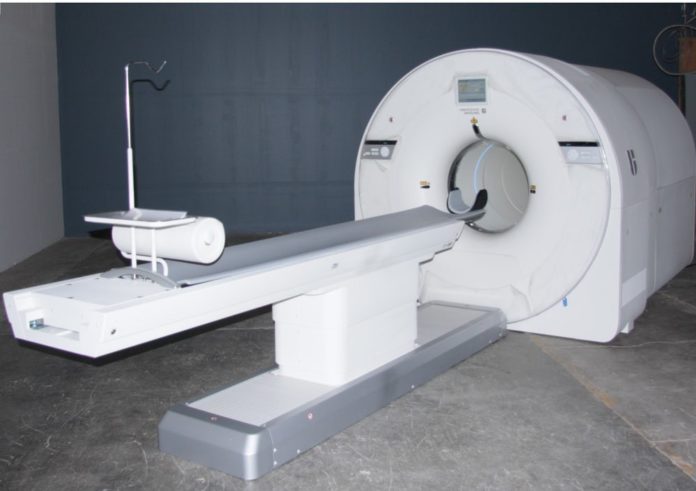The new scanner EXPLORER can capture a 3-D picture of the whole human body at once
The world’s first medical imaging scanner, EXPLORER that can capture a 3-D picture of the whole human body at once, has been unveiled.
EXPLORER combines positron emission tomography (PET) and x-ray computed tomography (CT) scanner that can image the entire body at the same time.
The brainchild of UC Davis scientists Simon Cherry and Ramsey Badawi, EXPLORER can produce an image in as little as one second and will produce movies that can track specially tagged drugs as they move around the entire body.
EXPLORER scans up to 40 times faster than current PET scans and can produce a diagnostic scan of the whole body in as little as 20-30 seconds
The technology could help in tracking disease progression and research of new drug therapies.
The first images from scans of humans using the new device were shown at the Radiological Society of North America meeting in Chicago.
“While I had imagined what the images would look like for years, nothing prepared me for the incredible detail we could see on that first scan,” said Cherry, distinguished professor in the UC Davis Department of Biomedical Engineering.
“And the dynamic sequence showing the radiotracer moving around the body in three dimensions over time was, frankly, mind-blowing. There is no other device that can obtain data like this in humans, so this is truly novel,” he added.
EXPLORER scans up to 40 times faster than current PET scans and can produce a diagnostic scan of the whole body in as little as 20-30 seconds.
The device can scan with a radiation dose up to 40 times less than a current PET scan.
Researchers envision using the scanner to study cancer that has spread beyond a single tumor site, inflammation, infection, immunological or metabolic disorders and many other diseases.
The first system will be installed at the EXPLORER Imaging Center in Sacramento, and the researchers hope to begin clinical research and imaging patients using EXPLORER as early as June 2019.



This technology has great future.